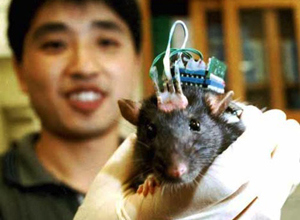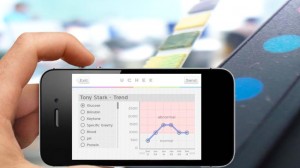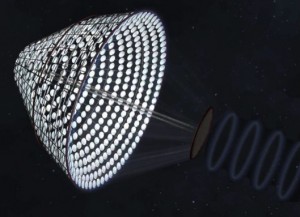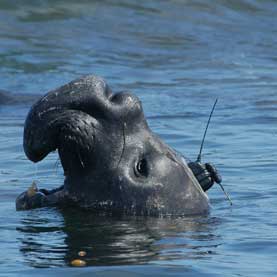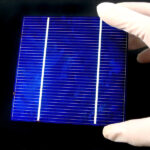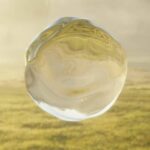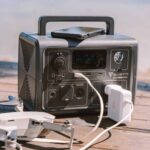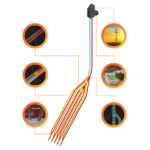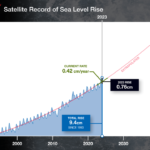It’s been an interesting week for science and technology headlines and here are five I would like to share with you:
- Implanted Brain Chips Create Brain-to-Brain Interface;
- New App for Smartphones Lets You Check Your Urine;
- Chinese Invent New Water-Saving Irrigation Technology;
- Space-Based Solar Power Starting to Heat Up;
- Tagged Elephant Seals Solve Missing Piece in Global Climate Puzzle.
Rats Communicate Brain-to-Brain Using Installed Chips
Neuroscientists at Duke University have installed brain chips in rats and tested to see if the actions of one isolated rat can be transmitted to another one without visual cues. The brain-to-brain interface (BTBI) in the study allowed for a real-time transfer of meaningful action from one rat to another resulting in similar action from the rat receiving the signal. Watch the video of the experiment posted on YouTube.
The Duke study follows earlier experiments linking animal brains to machines through an implanted brain chip. The BTBI works in both directions. Researchers were able to show that the rats exhibited behavioral collaboration over time even though they were never together. BTBI also worked over long distance with researchers getting rats to collaborate, one located in Brazil and the other in Durham, North Carolina. The neuroscientists see the potential to develop collaborative networks of animal and machine brains to provide solutions that individual brains cannot solve.
Urinalysis App Comes to Your Smartphone
Biosense Technologies, a company from India, has created a smartphone app for Apple’s iPhone called uChek which anyone can use to do their own urinalysis. The app, soon to be downloadable from Apple’s App Store for $99 will also require the user to purchase chemical test strips for another $20.
How does the app work? Just like the standard urinalysis done at your doctor’s office or at a medical laboratory. Collect your urine in a cup. Dip the test strip in the urine for a couple of seconds. Then place the test strip on a color-coded mat that comes with the uChek application. The test strip changes color to reflect chemicals concentrated in the urine. Using the app take a picture with the iPhone camera. The app then analyzes what it sees and produces easily understood information in graphical format.
A cautionary note. Don’t do this test over an open toilet bowl. You don’t want to have to fish out your iPhone should you drop it.
Chinese Scientists Improve Irrigation Technology to Use 50% Less Water
In arid farming areas drip irrigation is commonly used. But as the world witnesses growing droughts and freshwater scarcity, any improvement that reduces the amount of water needed to sustain growing crops can mean the difference between feast and famine.
Researchers at Huazhong University of Science and Technology, in Wuhan, have developed trace quantity irrigation. The technology deploys control taps buried close to plant roots. The taps sense the rise and fall of moisture levels in the soil and then deliver water where needed. Films within the tap prevent reverse osmosis and clogging.
The team who invented and perfected the technology were able to successfully grow field and greenhouse crops in a variety of regions across China. Considered at least 50% more effective than Israeli-developed drip technology, trace quantity irrigation should allow China to expand the amount of land it has under cultivation into marginal areas previously prone to drought and considered unreliable for crop production.
Is Space-Based Solar Power Going to be Part of our Renewable Energy Mix in the Near Future?
If projects like SPS-Alpha get from the drawing board to production then the answer will be yes but the timelines remain 10 to 15 years in the future.
Delivering solar power from space is not a new idea. It has been envisioned for decades but always has been seen as expensive to build and maintain in the harsh vacuum and extreme heat and cold of space.
SPS-ALPHA, proposed by John Mankins, a 25-year NASA veteran, involves launching into space thousands of lightweight, inflatable mirror-surfaced modules which then would be assembled into a bell-shaped funnel (see picture below). The mirrors would concentrate sunlight onto targeted solar panels. The energy generated would then be converted to microwaves and transmitted to ground stations on Earth providing a renewable power source.
Cost of the project – between $15 and $20 billion.
Mankins hopes to find a wealthy benefactor or consortium of eco-billionaires who collectively could fund the venture. Sir Richard Branson, Elon Musk, Michael Bloomberg, Jeff Skoll and Peter Thiel, are you listening?
Elephant Seals in Antarctica Help Discover Oceanic Heat-Sink
Researchers who fitted satellite-tracking tags on elephant seals have uncovered a source of deep-ocean cold water streams that plays an important role in regulating global climate. Water off Antarctica is highly saline and more dense than other seawater so it naturally sinks to the bottom of the ocean and then circulates slowly in a northerly direction away from the continent.
The tagged elephant seals forage in areas of the ocean off Antarctica’s Cape Darnley where few humans ever venture. In tracking their activities the researchers were able to get wintertime measurements of the continental slope as far down as 1,800 meters (over 5,900 feet). That’s when they discovered a densely saline waterfall descending to the deep ocean. The discovery fills a gap in climatologists’ understanding of the role Antarctica’s ice sheets and the surrounding Southern Ocean play in global climate.
A Postscript
Toronto got a renewed taste of winter this week with two days of wet snow covering the city to a depth of 25-30 centimeters (over a foot). I normally wouldn’t mention the weather but I can tell you these last few weeks with multiple snow dumps has made me want to hop back on a plane to Jamaica.
Thanks for continuing to visit this site to read my postings. If you have a subject we have yet to cover in science and technology that you feel has merit, or if the muse strikes you to write something yourself, please contact me. Your contributions, questions and comments are always welcome.
– Len Rosen

